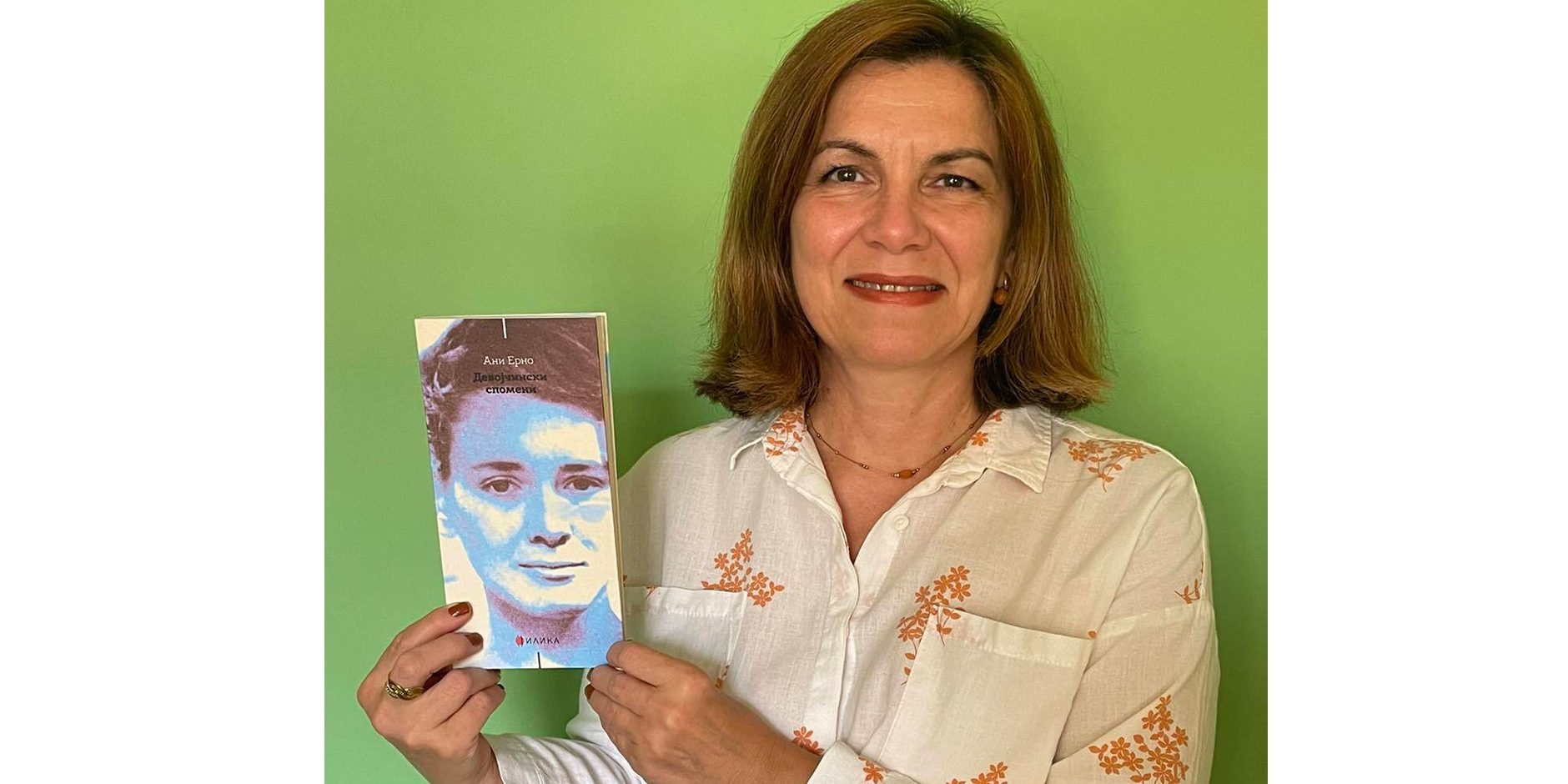1. What does the "Dragi" award initiative represent for you?
Last year, when the "Dragi” Award was established, I felt joy and approval. And for two reasons: first, because this award bears the name of my colleague from the Faculty of Philology, Professor Dragi Mihajlovski, who with his translation activity set reference values in the field of translation on Macedonian soil and in the Macedonian language. I had the honor of knowing him personally and having conversations with him in which he brought an extremely friendly atmosphere. Second, because with the establishment of this award, the vacuum that arose after the end of several annual awards for the best translation awarded by the Union of Literary Translators of Macedonia was ended. I personally perceive the "Dragi" award as a counterpart and continuation of the "Božidar Nastev" award, which was awarded for the best translation into the Macedonian language realized in the last year. Professor Božidar Nastev also taught at the Faculty of Philology and has made significant translations of works by French writers. The two awards are part of a meaningful continuum, as both professors have created translations that, one might say, are already classics – I think that this qualifier for a particular work of art that has survived and outlived its time thanks to its qualities can equally be used and for the translation, which is also an author's work and, if it is of good quality, becomes a classic after a while.
2. How important are rewards in your work?
If we talk about awards in the field of translating literary texts, I can say that they are important and dear to me, but they are not a decisive motive when I have to start translating a book. I am the winner of two "Božidar Nastev" awards: in 2010 for the translation of the work "Vatican Cellars" by Andre Gide and in 2013 for the translation of the work "Dangerous Liaisons" by Choderlot de Laclos. In both cases, the recognition came as a kind of surprise for me, because I didn't even know that my translations were in the selection for this award, and the award was, of course, experienced as a great satisfaction, as a confirmation that professional people recognize you. And when the recognition comes from the professional world, where you know that high evaluation criteria are at play, the restless perfectionist conscience can finally calm down and you can breathe a sigh of relief. Every literary translator (including me) who does his work honestly, with love and professionally, during the translation process itself, is only guided by that small perfectionist voice that constantly pushes him to search for the best possible and most appropriate translation solutions. The awards come as recognition that he succeeded in that quest.
3. What challenges does the literary translation bring?
I am convinced that literary translation requires expertise, just as a translator in the field of, say, exact sciences should be an expert. Literary translation requires literary nutrition on the part of the translator, which means that he must be not only a great reader, but also an "introductory" reader - to have some knowledge of the history of literature (the sequence of directions and poetics), but also of literary history. (literary works in coloration with the cultural-social context of their time and with the history of ideas). Often times, the translation itself will guide you in discovering those correlations; the translation of certain literary texts, (I repeat - if you approach it professionally), requires from the translator entire accompanying research endeavors, a kind of encyclopedic work through the consultation of literature that reveals a certain social condition characteristic of the time when the work was created. If you want, for example, to successfully translate Balzac, you not only need to know the historical context of the emerging bourgeois class that established itself as dominant, but also to familiarize yourself with the forms of capital circulation and the system of usury that determined the economy in that period, just as, to capture the picturesqueness of bourgeois interiors, descriptions in which Balzac is unsurpassed, you need to investigate what types of porcelain and exchange were favored by salon owners (as a kind of mark of their social status), where were produced, with what technique, from what material, etc.
4. Is any preparation required before starting the translation? Do you have your own ritual?
Undoubtedly, translation has its own period before, during and after the process. The preparation, of course, implies that the work should be read with due attention, and that as much data as possible be collected about it from various other sources, but also that we have relevant information about the author himself, and perhaps even more about his oeuvre. The ideal case would be if we have read several works by the author because, often, with good authors, the works in the oeuvre are a branched tree and feed on the juices that come from the same root. This is also the case with Annie Ernaux’s work. During the translation process, it is important not to give in to inertia and not to give in to the pressure of deadlines as an excuse that we cannot dig deeper in the search for information and suitable translation solutions. The period after the release of the translation is a period of listening to the reactions of the audience, trying to calm down the excitement with which we translated and rationalizing the results we achieved. If we talk about my favorite part of the day when I like to translate the most, it is in the morning, by the window, with a nice cup of coffee. Favorite place – Ohrid.
5. Does the translation help in enriching the language and the expression?
Yes, it helps a lot. Of course, it is necessary to know well both the language from which it is being translated and the language into which it is being translated, the way in which those languages work because, often, as in my case, the translation is performed between two unrelated languages that systematize and establish completely differently ratios. That enrichment is, on the one hand, individual – personal knowledge of the language and expression are raised to a higher level; the improvement happens on several levels that are not only of a lexical and structural nature – on a semantic and phraseological level you learn to recognize polysemy and word games, to play with their etymological and dialectal nature, to create suggestive neologisms, to look for correlative culturemes in both languages, etc. On the other hand, that personal plan is complemented by the collective plan, the nice feeling that with each translated work you contribute to the enrichment of your own mother tongue.
6. Is translation more challenging when translating a famous or favorite author?
The biggest challenge is when you translate a text that appeals to you, regardless of whether it comes from a well-known or lesser-known author, from a favorite or less- favorite writer. I am currently translating the theoretical-essay work "Pleasure in the Text" by Roland Barthes, so I will try to use his metaphors to answer this question. I want to translate a text that not only gives me pleasure, but also causes a certain excitement in me; a text that, through its "slits", challenges me to search for its body, its hidden corporeality; a text that is "borderline" and seduces me because it invites me to "explore its meaning potential", a text that tempts me because it is, a little bit, "neurotic" because it leads me to long meditative combinatorics about ambiguity, triplicity, etc. on some of his segments (the famous "What hat did the writer want to say?"); a text that turns into a real passion because, even when I think I'm not thinking about it, trying to do my daily chores, it's still there, in the back of my head, it pops up when I'm walking or doing some housework, and with pleasure. I give myself up to thinking about how to translate a word, an expression, a segment...Finally, a translation from which I have something to learn!







